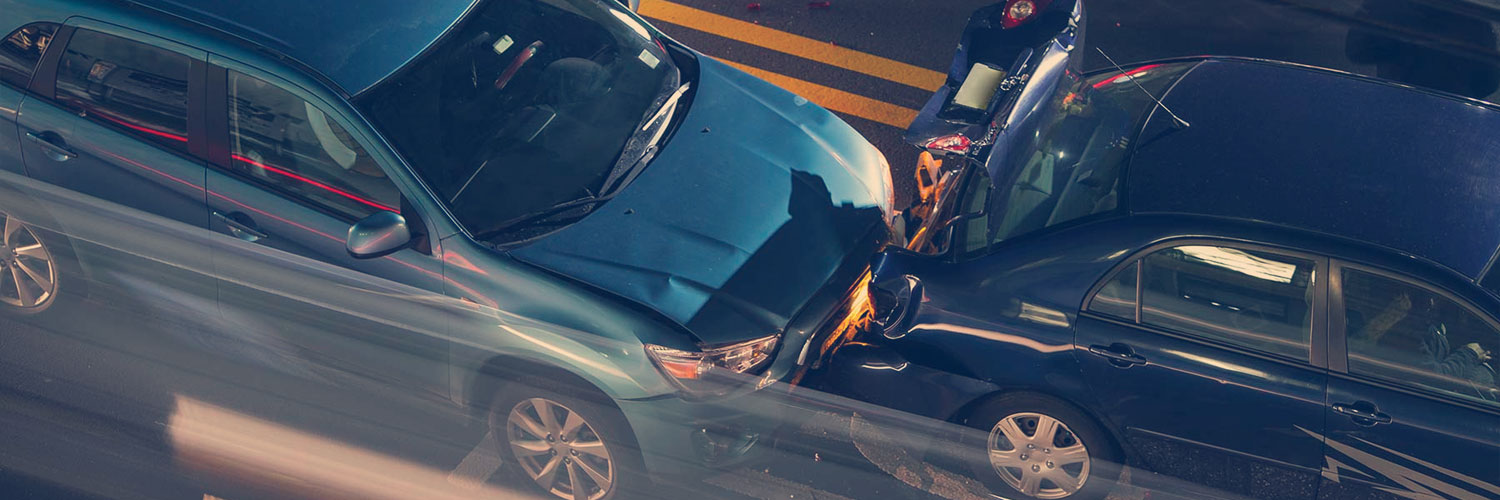Over six million car accidents occur each year in the United States. Fortunately, most of them involve only property damage – damage to the vehicle as opposed to the occupants. But one in three accidents involve personal injury to the driver or passengers and out of that number, two out of every ten accidents lead to fatal injuries.
Knowing your rights before the unexpected happens may help you cope, when and if an accident occurs. These are the top eight things to do to protect yourself and your rights, if you are in an accident.
At Adler & Adler, P.C., we are here to help you 24/7: 312-443-1488.
- STOP. Never drive away from the scene of an accident, even a minor one.
- CALL THE POLICE. Even if there are no serious injuries, call the police. You may need a police report to file a claim with your insurance company, even if it is just to make a claim for the cost of repairs to your vehicle. The vehicles involved in the accident should remain where they are, unless they interfere with traffic.
- MAKE AN ACCURATE RECORD. When the police arrive, tell the investigating officer(s) exactly what happened, to the best of your ability. Do not speculate, guess, or misstate any of the facts. When you are asked if you are injured, tell the officer exactly what hurts, to the best of your ability. If you are not sure whether you are okay or not, say you are not sure, rather than no. Multiple studies have shown that the pain and injuries from motor vehicle accidents become apparent hours after the actual collision. If you say no at the scene and begin to feel pain later, you may hurt your chances of full compensation later, when the insurance company uses your answer at the scene against you. Also, it is very important that you should also make sure statements made by other persons involved in the accident are accurate as well. For example if the other driver said they never saw you or they were sorry, it is important that this information be included in the initial report.
- TAKE PICTURES. If you are able to, take pictures of the scene of the collision, including the vehicles’ damage and the location of the vehicles. If you have visible injuries, you should photograph them as well. However, you should in no way interfere with the on-going police investigation. If you cannot take pictures at the scene of the collision, take them as soon as possible thereafter.
- EXCHANGE INFORMATION. Typically, the investigating police officer obtains this information. However, if the police do not respond to the accident, you should obtain the name, address and telephone number of all persons involved in the accident, drivers and passengers alike. You should also obtain information about insurance by asking to see the insurance card for all vehicles involved in the accident. If there are witnesses, you should get information from them as well so that you or your attorney can contact them in the future. If police respond to the accident, the investigating officer usually will provide all drivers with a police report number.
- WRITE DOWN THE WITNESSES’ NAMES AND CONTACT INFORMATION. Bystanders and other drivers often stop and offer assistance, but many times they must leave the scene before the police arrive. Sometimes police officers do not record witness information on the police report. If you are unable to write down the information yourself, ask all witnesses to jot down their names and contact information for you. Your attorneys will contact them during their investigation of the case.
- REPORT THE ACCIDENT. Notify your insurance company as soon as possible. Many policies require immediate reporting and full cooperation. Find out if you have medical benefits as part of your insurance coverage. You pay extra for that type of coverage – known as medical payments coverage or ‘med-pay coverage” – so you should use it. In fact, if you have med-pay coverage, you are required to submit your accident-related medical bills to your own insurance company first. Med pay coverage is primary for accident-related medical bills. Once med-pay benefits are exhausted, private health insurance becomes your primary insurer. Med-pay benefits are available to all the occupants of the vehicle. Your insurance rates should not increase as a result of submitting claims for med-pay coverage.
- SEEK MEDICAL ATTENTION. Often, injuries caused by motor vehicle accidents are not immediately apparent. Many of our clients report feeling the most pain a day or two following an automobile accident. Unless you are absolutely certain you were not injured, you should seek medical attention at your local emergency room or by seeing your family physician. Even in accidents involving minor impact, you can sustain a serious and permanent injury to your spinal cord. If you lose consciousness or are dazed for even a short period of time following the collision, you may have suffered a concussion or closed head injury. This can cause cognitive and behavioral changes if left untreated. When you go the hospital or doctor, give them accurate information about the accident and your injuries. It is also critical that you give them accurate information about your medical history. For example, if you have had prior injuries, especially in the areas you are feeling pain after the accident, give the doctor specific details about that: the location of the pain, the type of pain and how long it has been that you are pain free, when and how you were hurt, and what treatment you received. Your failure to be candid about your past medical history can negatively affect your case.
- PROTECT YOUR RIGHTS. Don’t go it alone. Consult an attorney to learn your rights and responsibilities after an accident. At Adler & Adler P.C., with over 35 years of Illinois accident law experience, Senior Partners Mark Adler and Valerie Harris Adlerbring their knowledge, experience, and personal attention to each client and his or her injury claim—knowledge that is critical to obtaining full compensation for serious injuries. At Adler & Adler P.C., we work on a contingency fee basis, meaning that we only get paid when we get you or your loved ones compensation.
Only experienced attorneys, like those at Adler & Adler P.C. can fully protect your rights. Over the years, we have seen many people wait too long to seek legal advice. During the first critical days after a collision, the at-fault drivers and their insurance companies begin their investigation to start building their defense to limit or deny you fair compensation. You need an advocate who protects your rights.
That’s why our attorneys are available 24-hours a day. If you or a loved one has been injured in a traffic accident, protect your claim by contacting us immediately through our 24-Hour Hotline: (312) 443-1488 – even if you are not sure that you have a case.
Remember, insurance companies are under no obligation to pay you or inform you of your rights. If you talk to them without an attorney, they will attempt to use your statement to reduce or deny your claim. In fact, many insurers try to cover as little of your claim as possible and may attempt to undervalue your injuries. If you or a loved one is injured in a car accident, call Adler & Adler, P.C. at (312) 443-1488 as soon as possible after sustaining an injury in a car accident that was caused by another driver. We will help you understand your rights and options, and we will protect your rights.


